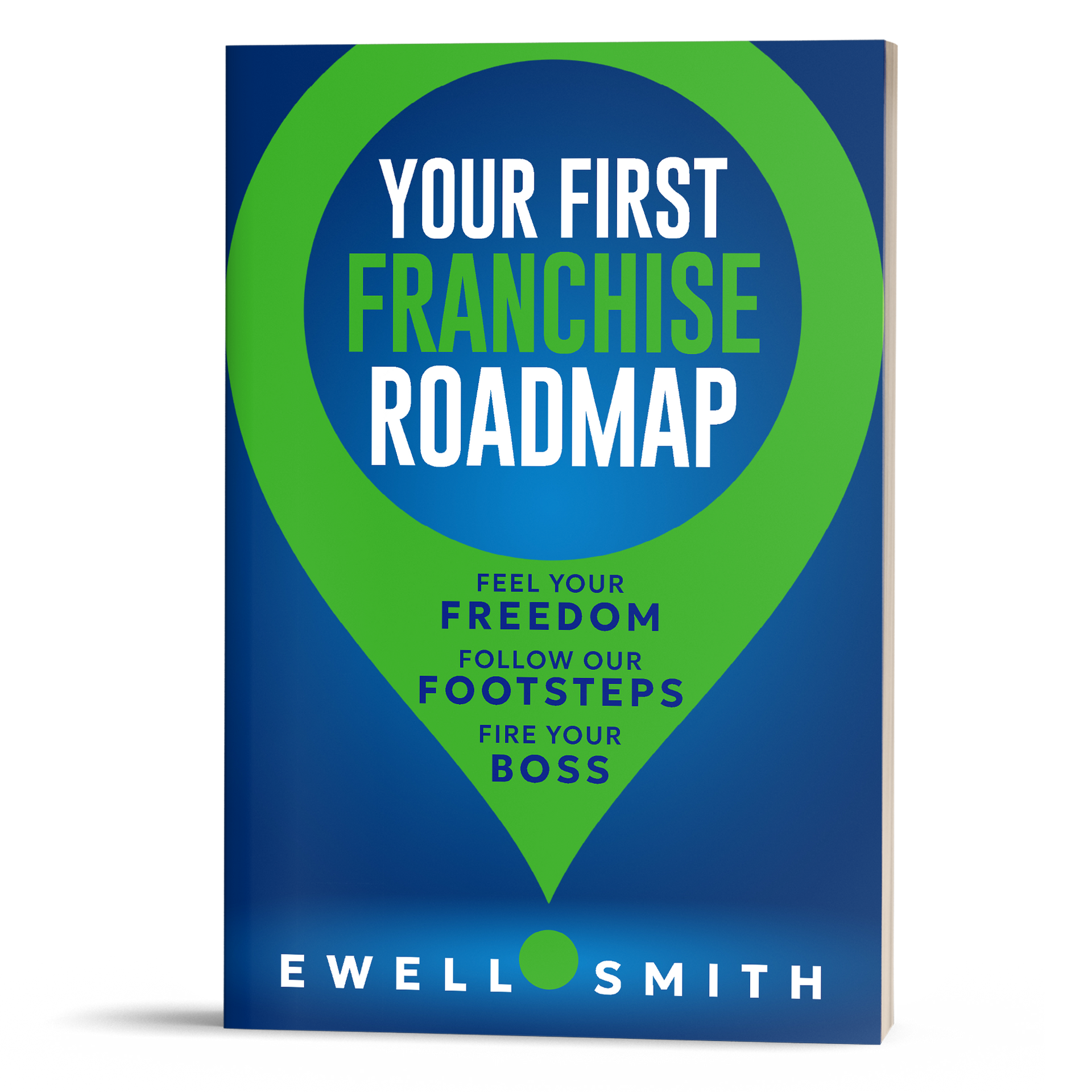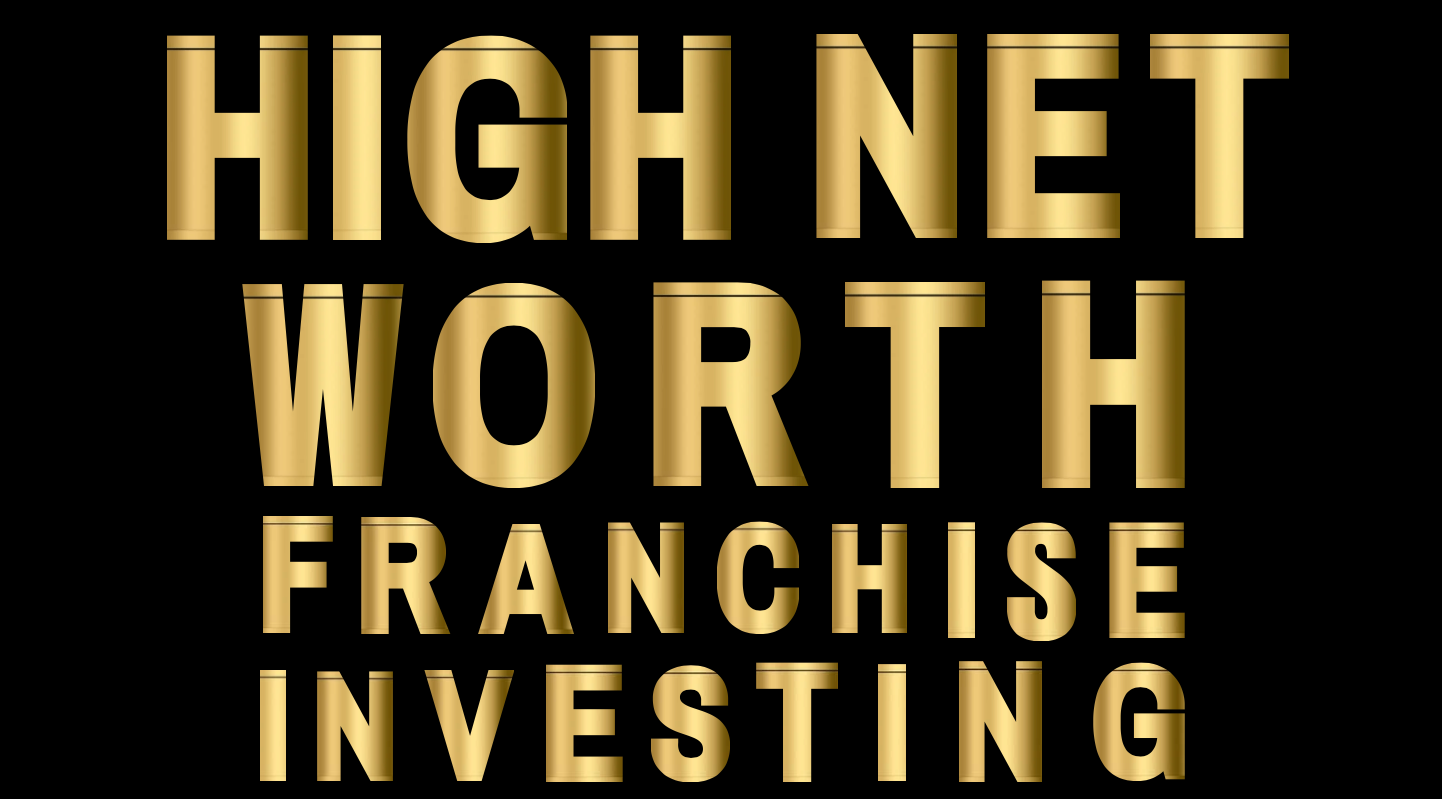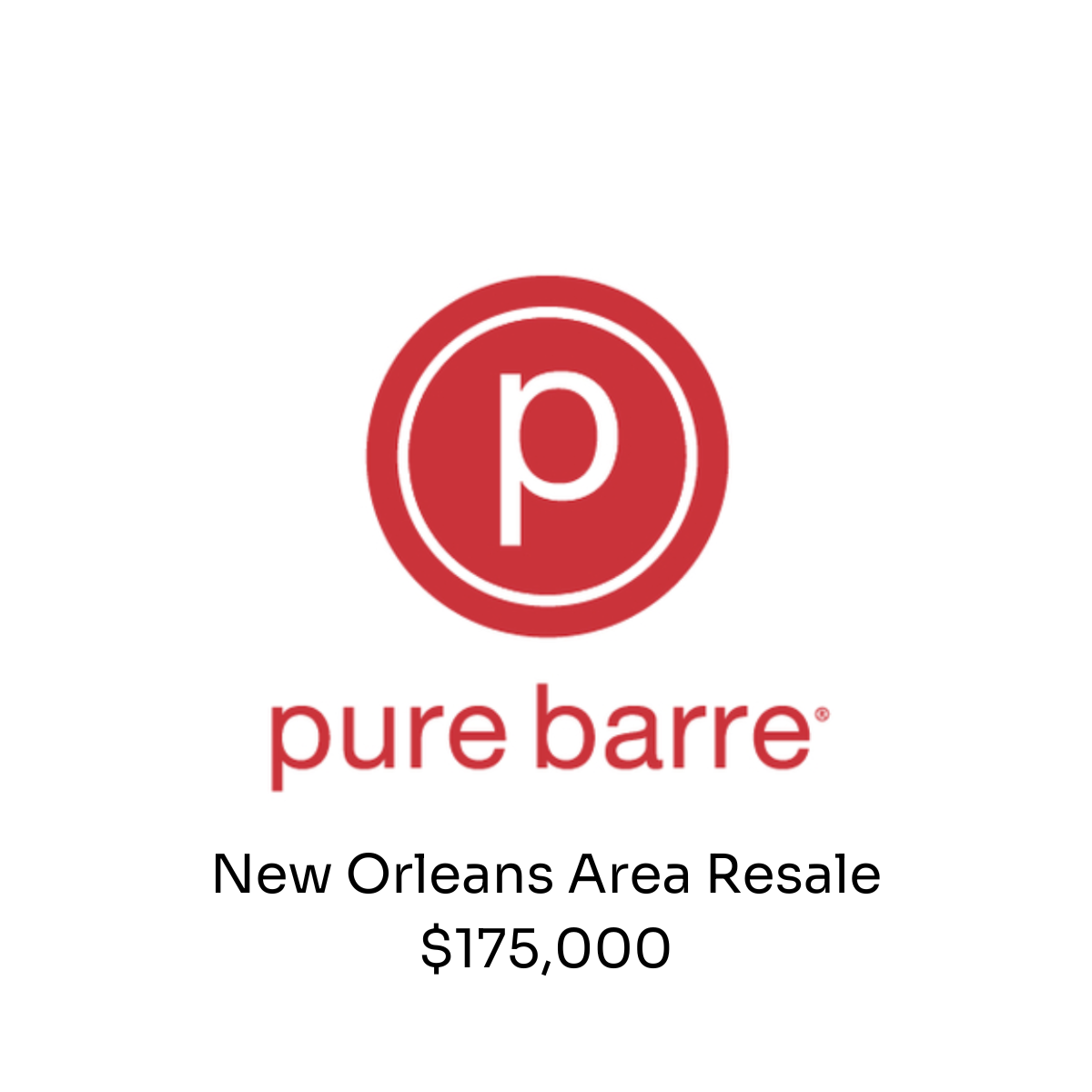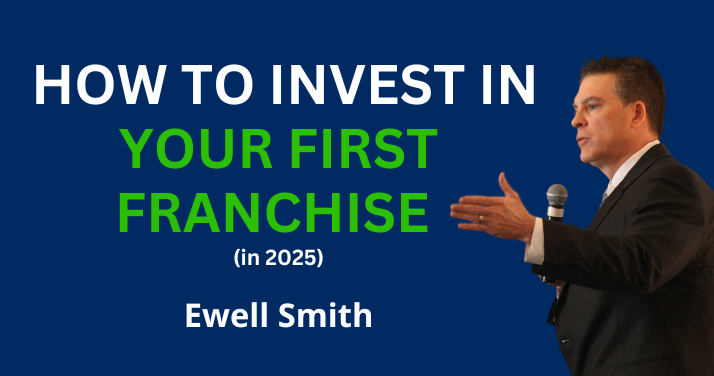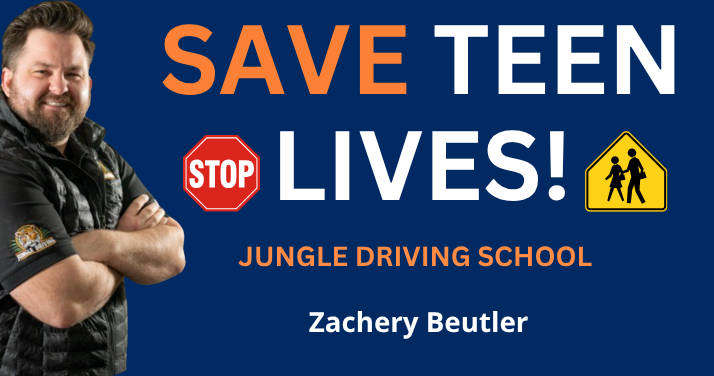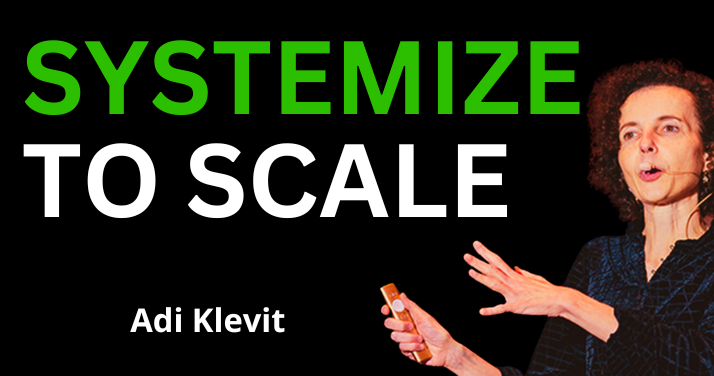March 11, 2023 by Ewell Smith

Turning lemons into $102 million worth of lemonade? How's that possible in two years?
The lemons cliche may be tired but it still holds true...especially in times of crisis.
As covid was causing chaos with businesses across the globe and in the U.S., Gary Frazier's business was no exception feeling the impacts. Then he got a call to solve a problem at LA County's Correctional Facility.
That huge problem became a new business - and fast.
Gary shares 3 takeaways from this episode of the Close The Deal. Com Podcast:
- His mindset getting into his own business
- How he views pivoting in times of crisis
- His #1 tip to new entrepreneurs getting started
Connect with Gary:
https://www.linkedin.com/in/gary-d-frazier-56113011/
Show Notes with Gary Frazier
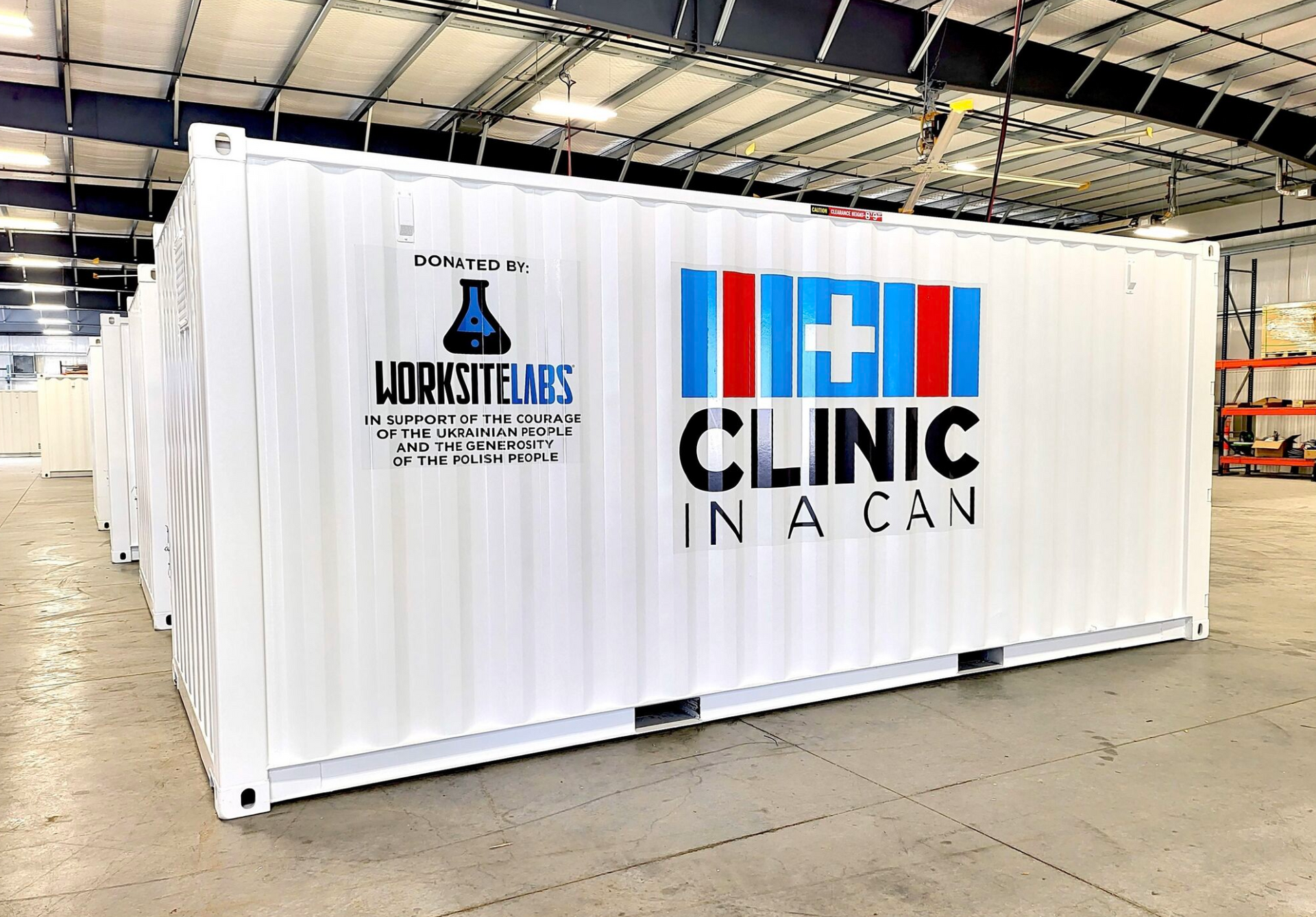
Gary Frazier: I like to talk about the vision because, I believe that entrepreneurship is similar to a sport and I know it's the guy thing to do the sports analogies, but it's similar to a sport in that you always are in motion,
Right? That's the whole thing, it’s the movement, the constant change.
And even to, to the point to where you are disrupting yourself, and that's what we went through with this whole series of 2021 and 2022. It was how do we continually evolve and disrupt? It's not the same as pivoting.
People say, oh, you're pivoting. Pivoting is…
Ewell Smith: That is Gary Frazier. He is the CEOO of Worksite Labs. Now, he had a pretty good year in 2021. He did more than just pivot, as he was just alluding to. In fact, he did zero to $50 million in sales in 2021, and he piggybacked that with a year of 2022, which he alluded. During our interview toward the end of last year, wondering how he would finish.
[00:01:00] Well, I called him up and he finished up with another $52 million in sales for 2022. Now you're listening to the Close The Deal.Com Podcast. I'm your host, Ewell Smith, and you might even know Gary's work.
In fact, you may have seen it on the national news or you possibly experienced it if you were in the mainland of the United States trying to get to Hawaii when Hawaii was opening up during Covid.
His business was instrumental in making that entire process happen. It's a business he started due to an opportunity with a Department of Health and Corrections in Los Angeles. Out of that opportunity, this new business was created.
This new business is disrupting the healthcare sector in the United States, and he's taken it globally. One more thing for this interview. He's gonna share his number one tip.
[00:02:00] He was in New Orleans in the fall, speaking to a group of entrepreneurs, and that number one tip he gave them, he's gonna share with you on this show as well.
This is gonna be a fun show. And, uh, let's welcome Gary…
Gary, I wanna welcome you to the Close The Deal.com Podcast. Let me ask you, where are you based out of? Where are you working from today?
Gary: I am working from Long Beach, California. So, think Snoop Doggy Dog. And who else? There's a couple other stars outta Long Beach. I can't, they're not coming to mind right now
Ewell: I love the area. Let me ask you an important question. What are you grateful for today or maybe from the past that helped you get you where you are and what you do today?
Family is everything
Gary: Honestly my family, anything that I am endeavoring to do, especially as an entrepreneur, has an impact. on, whether it be my wife, my kids, if we're talking, we go back far enough.
[00:03:00] My kids are grown up now. But, the fact that no matter how much disruption I cause in my household, financially and otherwise, I always have them as a steady reminder of why I do what I do, why it's important to be successful, so yeah, I am, I'm grateful for my family.
Ewell: You're very fortunate, very blessed. You stepped in at a time when there was chaos in the world and you identified a huge problem, and you came up with a solution. Share a little bit of your background first. That tees up where you saw that problem, you knew you could help address it.
A recovering hospital administrator
Gary: Yeah, so I am, a recovering hospital administrator. I've spent the better part of 20 years on what's called the provider side of healthcare. So, I worked at mostly hospitals and then during the Affordable Care Act rollout, so 2009 through, call it 2014, 2015.
[00:04:00] I was responsible for these health systems for developing Affountable Care organizations, clinical integration networks joint ventures with physician groups and health plans around Medicare innovation projects.
So, I was deeply in the mix around a time in healthcare when things were. I'll say accelerated. Evolution, right? So that was where I cut my teeth, where I learned pretty much about every single aspect of healthcare because my part of the uh, the picture in an administration was business development and. Right? So, if you looking at hospital administration, you got your CEO, your CFO, your COO, so I was the Chief Strategy Officer,
Ewell: Gotcha.
Gary: Right? So, I had to be the one to built the relationships around, the new businesses that were being born during the, that window of time especially.
Yeah. when I left health systems, I went to work for, I'll, let's just call it the ancillary parts of healthcare.
[00:05:00] So I worked for group purchasing organizations where I was consulting around physician relations. I worked for private equity at one point when I was doing mergers and acquisitions.
So, I was buying hospitals from large hospital operators around the United States. And I built, looking backwards, I could see that, that I have a very unique.
That is not afforded to every hospital executive. That made it really, easier for me to be an entrepreneur when I decided to step out in 2000 and 2017 when I quit my day job.
Gary on making the leap to entrepreneurship
Ewell: So what was the mental shift before we get to the problem you solved, what was the mental shift that you said, okay, I need this and I'm sure that world was probably a little more comfortable as far as predictability in for your lifestyle or your livelihood and then you step out into entrepreneurship.
What made you make that jump?
Gary: So I think anybody who's quit a job to pursue a dream or an entrepreneurial endeavor would probably a agree with what I'm about to say here but it was like being struck by lightning.
[00:06:00] It was a moment in time, and I remember exactly the day, the time, what I was doing, when what was like a voice from God spoke to me, if you will like, like a brilliant idea.
Hit me all at once and it was all clear that, oh I rushed home and I wrote the idea down and that was, 2000 and, I don't know, I think 2015 when I first came up with what was then our, my first healthcare startup concept called Open Market Healthcare.
It was about disintermediating the insurance industry by creating a direct to. platform for healthcare for consumers to buy healthcare services. So primary care, surgeries and things like that. Because cash was always less. If you pay cash was always less than you pay with insurance.
[00:07:00] Anyway, I digress. My point is that when that idea struck, it was about creating more access for people who, at the time either didn't have health insurance, didn't have the kind of jobs that afforded them health insurance. , like a gig worker, that kind of thing. Or people who are on super high deductible health plans and it felt like they didn't have insurance.
So, I was really thinking about, I'll say the blue collar, the salt of the earth, American thinking, if we can create a pathway for them, then that'd be. Versus, all the other alternatives that were occurring, in existence at the time, around 2016 or so.
So that's what pushed me over the edge. Cause I thought I was I knew that I was doing something for the betterment of the average citizen in terms of healthcare access.
Ewell: And that's, that is so critical cuz my background is working in the seafood industry and the logging industry, the guys out in the woods harvesting trees and the access to healthcare is, especially in rural communities is a huge issue. And so, you identified, that's the first problem that you identified that, that got you, that sparked your imagination.
[00:08:00] Gary: That was it. That was it. That was it.
Ewell: Okay. So then comes a few, just a couple years later, we have a whole other world we're dealing with, and that's where I think that's how I came across you. This where this connection comes to with you is you solved a massive problem at a very peak point in time for everybody.
Gary: Yeah. So that was obviously for everybody. It was a no one could predict, right? A pandemic, technically there were those who were predicting that we would one day have one. Of course. But anyway when the pandemic was clear in early 2020 I was doing, I was running that first startup and I had a couple of, two or three clients and I had some partnerships with some health, not health plans, but some some large health systems in three or four markets.
And when the pandemic hit, my supply side, which were all the medical groups, they all basically had to drop everything that wasn't critical and focus on Covid.
[00:09:00] That included this ancillary concept that I was working on, right? So, I lost my supply. And then on the other hand, the three clients that I had, which were self-funded employers, by the way, that's how I was selling this.
They started laying off their employees.
Ewell: No.
Gary: So now all the, the consumers and, that were, that they started going away. But I was also sought after from many of my colleagues that were running hospitals or doing other parts of healthcare to help them solve problems. So, I received a number of calls.
The one call that changed everything...
At the time from friends who were executives at health systems, just trying to pick my brain because I had built a reputation of being innovative and creative. Anyway, one that stood out that really brought me to the solution was I had a friend, I, and she's still there, but a friend that worked for Correctional Health Services for Department of Health of Los Angeles.
And most people don't know that LA County is the largest jail in the United States. They house roughly 25,000 inmates and they arrest somewhere between three to 500 people a day.
[00:10:00] I'm not gonna get into the issues there. However, during the early stages of the pandemic getting test results back was daunting for them.
And they had a special need because they couldn't take someone off the. And then put them in the general population without having a PCR test done on them. They also didn't have the privilege to wait 5, 7, 8, 9, 10 days for a result because it's against human. It's a human rights violation to keep someone in a holding tank.
Ewell: Yeah.
Gary: For greater than, I think 36 hours or something.
Anyway, that friend is telling me about their problem and they say, they're saying, Gary, I don't know what to do. And I say, I know cuz I worked at operated hospitals. I know that a hospital department can be stood up in any facility, even an RV technically. It's just what's what we do during emergencies, shipping container, an RV, horse trailer, you name it.
[00:11:00] As long as you can fix that thing up to meet, clinical quality standards and you staff it with the right people. So, I say, look, if I were you, I'd put a lab in the parking lot. And I equip it to do high throughput PCR testing, molecular testing, and I'd have it licensed as a high complexity CLE lab so you can do other things with it.
And that friend says to me, can you do that for me? And I said, sure.
Ewell: And the birth of a new business,
Gary: Yeah, I immediately went about figuring out, what kind of facilities that were portable we could use. And, I started calling around to talk to some friends that were in the diagnostics business from equipment perspective. And we pieced together in a matter of, call it three months.
What was essentially our first high complexity CLE lab to serve that population, that vulnerable population, no doubt, at the jail. And then on the heels of that we have, we started to receive, I received other calls one of which was from Hawaii.
A 2nd call put Gary on National News - very good chance you saw his work
[00:12:00] So we were part of reopening Hawaii, if you remember that happening in
Ewell: Oh, absolutely. Absolutely.
Gary: And that conversation was actually the then lieutenant Governor of Hawaii, who's an ER physician named Dr. Josh Green.
Ewell: Hmm.
Gary: He is currently just this past election, just so you know, the tidbit. He just got elected as governor.
Ewell: Oh wow.
Gary: So the governor of Hawaii today was who I was talking to and texting with the summer of 2020 about what to do to help reopen Hawaii.
Ewell: Wow.
Gary: he put me with some other commercial. Industry players that had, let's call it a vested interest in Hawaii reopening as well, one of which was Hawaiian Airlines that then led.
Ewell: That was all over the news.
Gary: That's right. And we were Hawaiian Airlines as exclusive partner to put portable labs at airports up and down the west coast to test everyone leaving from the mainland, going to Hawaii, out of Seattle, out of San Francisco, out of Los Angeles, out of Las Vegasout of Phoenix.
[00:13:00] And so, between those two things all happening around October, November, actually it was the summer, and then we actually operationalized September, October, November in 2020. That was the birth. It was an immediate birthing of a company instantaneously with clientele.
Ewell: Wow. Massive demand.
Gary: Yeah. Yeah. So that was how we were born. It was with a jail and with the state of Hawaii and Hawaiian Airlines reopening.
Ewell: Okay, I wanna pause here for the break for just a second and we're gonna come back and I want to talk about. What's the market like now? Because things have settled down. Where do you want to go with this business? Because the need's going to continue to be there, but it shifts I'm sure, and you responded immediately to that problem.
[00:14:00] And then for the entrepreneurs that are listening to the show, some guidance that you may have provided, you just spoke in New Orleans at a conference and we'll talk about that as well in the guidance that you shared on entrepreneurship, helping people identify those problems, helping them probably find financing how do they get started?
So, we're gonna take a break right now and we'll come right back.
Ewell: There's an unbeatable way to sell more, and I'm gonna tease you with this. You can learn more about it. We call it the Story Sales Sequence, or the Close The Deal Story Sales Sequence, and it's easy to find. You just go to the close the deal.com website and you'll see the tab for story sales sequence.
Now, let's get back to the show.
Markets shift following a crisis - now what?
Ewell: Gary, welcome back to the show. Where's the business today? Because it's been a while since Hawaiian Airlines need to open up the floodgates, the tourism again. What does the market look like today for your business and what's next?
[00:15:00] Gary: So today, We employ just north of 300 people.
We are operating coast to coast where we have not just, I think we have about 12 laboratories, some brick and mortar, some still portable some at airports, some are just in the community. We service not just Covid obviously anymore, but a full slate of diagnostics tests.
I'll come back to that and explain which diagnostic tests we do. But it's a full menu. And if we look at our audited financials from 2021 we run at about 50 million revenue a year. And, we stand to beat that out here in 2022.
We're about to open a lab opening in Guam. So now we're reaching out. Yes. The cool thing is a US territory, so we get to have the same rules and apply here but we get the same, the effect of having international reach.
[00:16:00] So yes, there's a lot has happened since 2020. Most of that is because in 2021, February, 2021, it was clear that our model, although we were just doing it for the pandemic at first, we realized that it was globally disruptive.
We realize, oh my God, you know what we just did to fix a problem is something that if we continue to do this for things that aren't covid, if we continue to run what is a decentralized business model and diagnostic testing versus a centralized model, which is what the monopolies that we currently have in the United States are running on.
Taking on the monopolies...
We could actually. be, the Netflix to their Blockbuster. We could be the Amazon to their, Barnes and Nobles. We could be that thing because we have something here that they are not doing, and we're focusing on a client base that is not the traditional acute care.
Were very consumer centric.
[00:17:00] We even had the consumer technology that we own as IP on top of it. And we were working with retailers, we were working with airlines, we were working at airports, we were working with employers. We weren't doing the run of the mill thing.
And so that was clear in early 2021, and we ran with. we ran with that.
We leaned heavily into it, and that fueled the next phase, if you will, of our growth transition, which wasn't just Covid, cuz Covid is still there. We still do that. But it was this whole much bigger market that allowed us to really start to run circles around the competition, whether it be regional, local labs because they're just regional and local, or whether it be the duopoly, you know of Quest and LabCorp who are really focused on acute care and academic and like the big, they got a multi-billion dollar business just on that.
And we've been successful at it. We've been successful allowing them to be Costco and us to be Whole Foods.
[00:18:00] If that's a good enough, I keep giving you examples,
Ewell: A great analogy. Yeah. I love it. I love it. So, you were just speaking, you were invited to speak at the net to the Entrepreneurs Committee, is that right? Or a panel for entrepreneurs
Gary's guidance to new entrepreneurs
Gary: An entrepreneurship forum which was a panel discussion with three entrepreneurs. I was two entrepreneurs in one venture capital, investment banker type to talk through entrepreneurship, and then also of course, financing.
Ewell: And that was at the, that was at the National Association of Health Service Executives National Conference.
And that was in New, and you were in New Orleans just doing that. What, and who is your audience? Who were you speaking to? People who were interested in trying to help, how to figure out, to start a business in the healthcare sector. Is that what it was?
Gary: So multifaceted. So, one the audience were healthcare career.
Ewell: Okay.
Gary: So people that were either C-suite executives at hospitals and health systems, or climbing that same ladder to become C-suite executives. People who were where I was ..
Ewell: Mm-hmm.
[00:19:00] Gary: I became an entrepreneur, people who had day jobs were getting paid a lot of money to run existing legacy healthcare businesses.
That's who was in the audience primarily and the talk was go.
Ewell: and they want to transition...
Gary: They're, if they were in the audience, it means that they were at least interested enough to consider. Transitioning away from, corporate ladder climbing and becoming an entrepreneur.
And they might, many of them might have had some ideas, right? Some, like that bolt of lightning that I received, but not really quite knowing what the first step. So that's who was in the audience.
Ewell: So, if you could break down some of the things that you all discussed, I'm curious to see, cuz this is a different, this, you got a small business and you got, healthcare is very specific. You got a lot of regulatory issues and a lot of very specific skills to do what you do.
[00:20:00] What about the fundamentals of starting a business, aside from figuring out the regulations, is pretty simple, pretty. Across the board, what would you, what was your advice or guidance that you provided them?
Gary: A few pieces. So one is that one of the fundamentals of being an entrepreneur is that you have to be all in.
If you're gonna step out. And now of course people sometimes start with a, let's call it a side gig or a side hustle as they call it. But even with a side hustle, if you really want it to actually work, you will have to make the decision to basically give it a hundred percent.
And if, and until then, there's no way anyone else, whether it be an angel investor, Whether it be a recruit, a partner, no one else is going to step in with you until they know that you've stepped all the way out and into the thing.
So that was one big piece, right? It was the personal commitment to, to say, I'm gonna let go of X and grab a hold to why
Ewell: Yeah.
Gary: There's no half in, half out.
Ewell: No.
[00:21:00] Gary: And that's emotionally, that's financially. Cause I talked about, the first startup and how I emptied my 401k. And how literally I'm still going, I'm still going through therapy today with my wife. Because of something that I did, 20, almost 10 years ago. But the point is that it requires that kind of commitment because anybody who wants to be partner with you or invest money in you, they want to know that you believe,
Ewell: Yep.
Ewell: Harder than they believe in the
Ewell: Absolutely.
Gary: was the first and biggest thing we talked. And then we proceeded to talk about just some of the basic business fundamentals, and many of the people, just so you know, national Association of Health Services Executives is a, is an organization that was created by black healthcare executives in the sixties because A C H E, which is the American College of Health Executives at that time, the black people had they weren't ostracized, but they weren't exactly welcomed in.
[00:22:00]And so, there were probably 10 or 15 black executives that met down the street or in a, in, in a separate suite. And that's how NAHSE was started. So you fast forward to today, the audience predominantly people of color predominantly black. And so, there is also the, the question of what does it mean to be a black entre?
In America, right? Or globally, is it easy or more difficult to raise money? And the answer is, of course, it's more difficult. You don't and it's less that you're black, it's more that you don't fit the pattern recognition,
Right?
Ewell: Being comfortable.
Gary: Yeah. Yeah.
Ewell: A level. There's a level of com, yeah.
Gary: As a level of conference, even my age, When I did it, I didn't fit the, you gotta, they're looking, these guys are in their twenties.
These entrepreneurs are out there making billions and building unicorns all started when they were in their mid-twenties or something. And so, when you walk in and you're my age and you spent 16, 17 years in healthcare as an exec, you don't exactly fit the. The, the pattern recognition.
[00:23:00] You don't look the look, you don't walk the walk, the walk. So anyway, so we talked about that. We talked about, what we as people, black people in particular, have to do differently and maybe ho how much longer we may have to suffer through bootstrapping, if you will,
Of the fact that it's just really difficult to raise a seed round.
Or an A round, when you are a person of color or a woman of color or something.
Gary's vision driven by embracing change
Ewell: What's next for your business and marketing wise? Is it? Is the demand that's that great that you, the marketing is, I obviously you gotta do pr, you always have to do pr. You always have to do marketing, but , what's the vision for your company going forward?
Gary: Yeah, so I'm really excited. I like to talk about the vision because, I believe that entrepreneurship is similar to a sport and I know it's the guy thing to do the sports analogies, but it's similar to a sport in that you always are in motion,
Right? That's the whole thing is the movement, the constant change.
And even to, to the point to where you are disrupting yourself,
[00:24:00] And that's what we went through with this whole series of 2021 and 2022. It was how do we continually evolve and disrupt? It's not the same as pivoting.
People say, oh, you're pivoting. Pivoting is I'm looking at the market and I'm being responsive and reactive to that.
There's some of that cuz you're small and you're nimble, but if you really want to get out ahead of it, you have to say if our goal is to create more access in healthcare, right? And our current mode is diagnostics, that's the business that we are in.
How do we continually disrupt. One way to do that is to move as much as you can in our situation, out of the lab, into the bedside or out of the lab, into the streets or out of the lab, into the rural areas and that means that we're partnering with biotechnology firms. We're looking at next generation sequencing.
[00:25:00] You know what I mean? We're trying to figure out ways to allow both patients and physicians to have the information that they need as fast as possible so they can get to the work of starting the therapies and the treatments as fast as possible. And you don't get that when you have to take a specimen and then send it off to a lab and then wait.
So, to the extent that we're investing in new technologies and systems that allow for point of care. Diagnostics and testing, whether it's the US or abroad in Africa or Southeast Asia. That's the kind of things that we're doing right now.
Ewell: What type of testing are you all, I obviously you did the covid, what really got you a game going here, but what other tests are, if you had your bread and butter, what would those be?
Gary: So one of the things, and I'm, I've been inspired by Bill Gates, by the way of late where, when you look at rich comp countries, which is a term that Bill Gates likes to use, . For the most part there's a lot of expensive diagnostics and therapies around things like unique cancers or genetic diseases that are rare.
But when you look at the vast majority of the world population, they're still suffering from and dying from preventable diseases like malaria.
[00:26:00] Right? Stuff that we don't even think about here, right?
And so when I think about where we go, I look at those things. So when I say let's put together a lateral flow assay, and we're literally working with some bleeding edge biotech companies on doing this kind of thing, that can detect those kind of infectious diseases so that you have a multiplex that can catch the latest covid variant, monkeypox, polio, if we're talking about the kind of Africa Ebola. right?
So that the folks that are in places that do not have the infrastructure that we have in the us, so if it's Doctors without Borders, they can be out there and have the tools that they need to quickly diagnose these things. Now, the thing about that is that, again, by moving more things out of the lab, you would say then that takes business away from you as a laboratory company.
ONE WORD - Diagnostics
[00:27:00] And I would argue two things. One, the day we see ourselves as a laboratory company and not a diagnostics or a healthcare company is the day that we slow down our growth, and we try to, we be, we're like everybody else, right?
Ewell: The diagnostics is huge. That's all you're doing is solving problems. It, it defines entrepreneurship. Diagnostics.
Gary: Yes. In fact, diagnostics is the beginning of healthcare.
It cuts across every single specialty. It's the, one of the very first things any medical provider has to do, whether it's an emergency or whether it's primary care, is they have to do some kind of diagnostics.
Ewell: So I've got a buddy of mine who has a company called Diesel Laptops He's a startup about the same timeline as you. You are in the engine world, the diesel engine world. There was no customer service and he brought customer service and making it easier for them to solve diagnostics.
00:28:00] The analogy he uses is, when you go to a doctor, what's the first thing they do? They set the baseline. They know where you are. Every car or truck or diesel engine that goes into a facility needs to be, [says the diagnostics. And that's the baseline. So, his business, like your business is exploding. So anyway, I digress, but...
Gary: You have to prove treatment. And I would put it even on a personal level,
Ewell: Yeah.
Gary: There are many people in communities across the world, even here in the US where by the time they find out that they have a cancer, it's already a stage four. By the time they find out. You know that they have diabetes, they could have found out when it was pre, when they were pre-diabetic, right?
And it's merely about just basic access to healthcare, step one. But it all still starts with going to get some kind of diagnostics or a blood test, or an L D L A C, BBC something so that even they can know that they have a problem that they need to solve, right? So, there's that. But the second thing I was gonna say is if we're the ones doing the disrupting, if we're the ones disrupting ourselves, we're also disrupting the industry at large.
[00:29:00] And as long as we're the ones doing it, it means that we have the power to rewrite what the future looks like, even if it's minus the laboratory infrastructure that we built across the United States.
And I'm okay with that because when we're done here, we can drop the mic and say that we actually did something that was impactful for the world.
Ewell: Absolutely. I love that. That's a great place to button it up. Where can people find out more about your business?
Gary: Couple. One you can go to our website, . It's Worksitelabs.com.
Ewell: Okay.
Gary: So that's pretty easy. And you can find us on social media Facebook, Instagram, LinkedIn and follow us. There's a number of case studies and articles that, that I've written and some of my colleagues, like my Chief Medical Officer and Chief Nursing Officer have written about some of the work we do in the community.
[00:30:00] We do have quite a, quite, quite a decent size community impact division that works with churches in Brooklyn, churches in South Los Angeles, churches in the Bay Area, and with the Boys and Girls Club to simply do what I just.
Which is separate and apart from, generating revenue, it's just being in the communities to serve.
So, I think that's what I would say is look for us on social, look for us at our website at www.worksitelabs.com.
Ewell: Gary, this has been a joy talking with you. This and your journey. Man. It's, it I use this term all the time. It's blue sky, cuz you're disrupting and you're creating your own space and the opportunities you're solving real problems, huge problems. And thank you for your time. I really appreciate it.
Gary: No, thank you for having me. Good time here.
[00:31:00] Ewell: Talk about turning lemons into lemonade. $102 million worth of lemonade. . I love it. Oh, that was fun with Gary. Um, you know, anything's possible. It's when it's how people respond to adversity. You know, you see people, I've seen it through the years, through crisis events and some people. Just the crisis takes over their lives.
And some others see it as nothing but opportunity. And I think that's what the lesson here is. The sky is the limit. You just never know just how big or how big of a pitcher, a lemonade you can make with those lemons. So anyway, enjoy. I hope y'all enjoyed the show. I appreciate you being. For Close The Deal.Com Podcast.
Check it out on all the different players. Do me a favor, leave comments. That always helps. And, we're still, you know, we're still new. We're an infant. I think we're gonna be green for a good, solid year learning. Um, I'm on this journey with you guys, so, and I appreciate you being here. Last thing, I always like to close with this.
[00:32:00] I want you to do a favor for. And that is to be very intentional about making this a great day. Make this a great day. This is your day. All right. Take care.
Subscribe
Be The Boss.
Your Gift For Visiting: Grab A Copy of Your First Franchise Roadmap
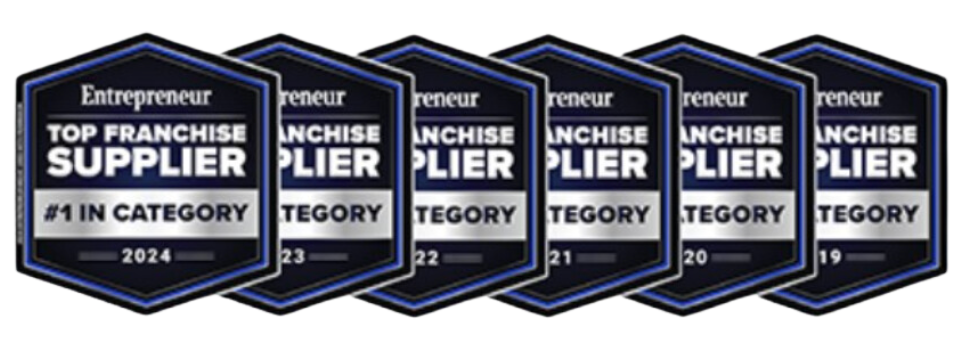
Close The Deal Leveraging
Multi-Unit Franchising. Click here.
Close The Deal Resales:
City Wide Franchise - Real Estate Management
Nassau, NY
- Total Gross Revenue 2023: $1,300,000
- Number of Employees: 2 (1 Account Manager, 1 Night Manger)
- Resale Price is $450,000 (includes $120,000 initial franchisee fees)
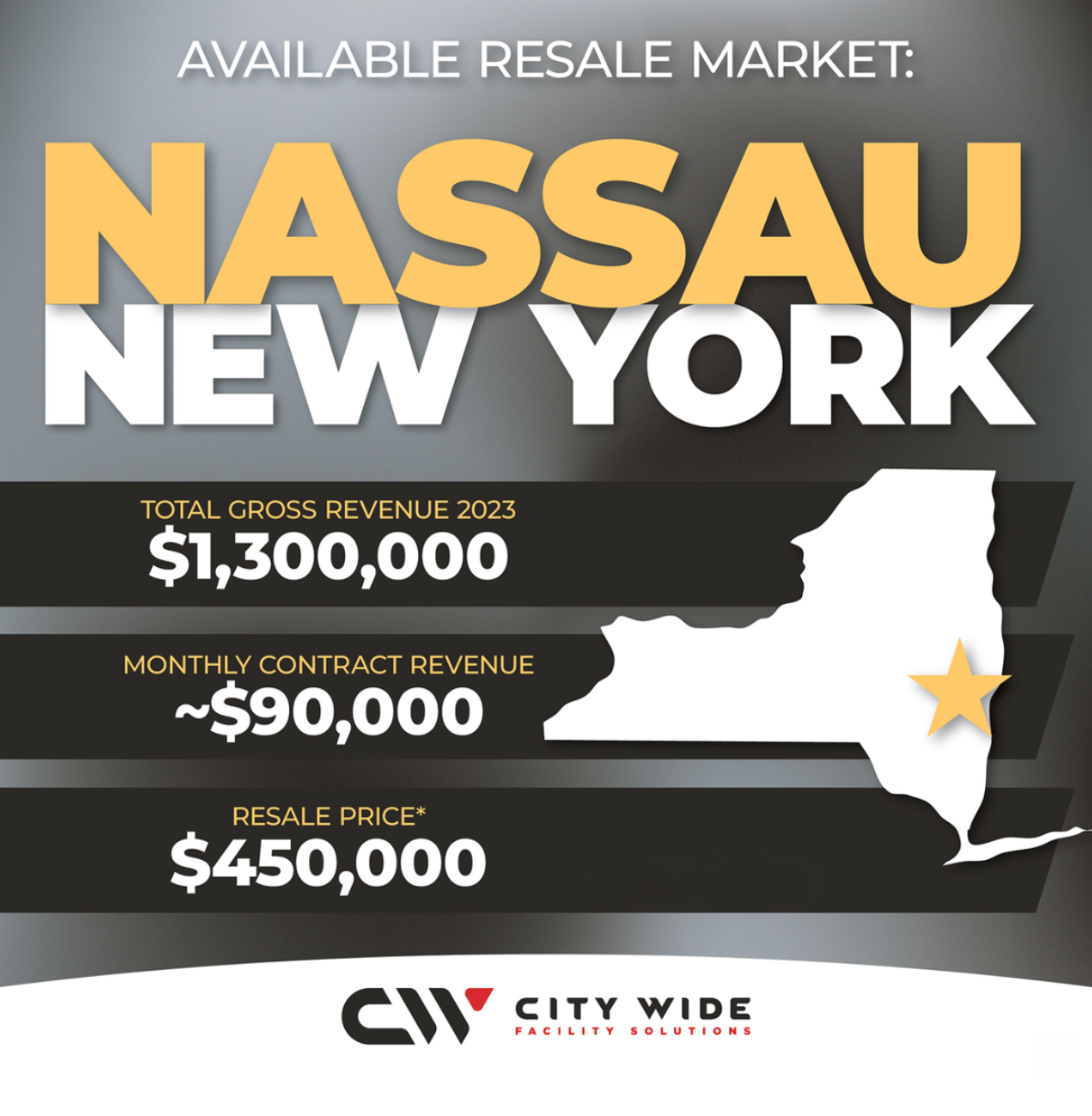
Top 10 Close the Deal
Franchise Resales
May 2025
Waggles Puppy Boutique - Roanoke , Virginia $425,000
Window Genie - San Antonio, Texas $300,000
Zoom Room - Huntington Beach, California $500,000
1-800 Radiator & AC - Amarillo, Texas $1,200,000
AdvantaClean - Bethel, Ohio $570,000
All Dry - Houston , Texas $430,000
AlphaGraphics - S LA County, California $1,800,000
Barrel House - Coralville, Iowa $1,800,000
BFT - Richmond Heights (St. Louis), Missouri $430,000
Budget Blinds - Huntsville, Texas $500,000
Over 173 Franchise
Resales Available
Learn more about the opportunities above and discover other resale opportunities:
About The Author: Ewell Smith - Certified Franchise Consultant / Publisher - Close The Deal / Host - Close The Deal Podcast / Author - Your First Franchise Roadmap - Ewell serves aspiring entrepreneurs and Veterans considering a franchise. To learn more, contact Ewell.



